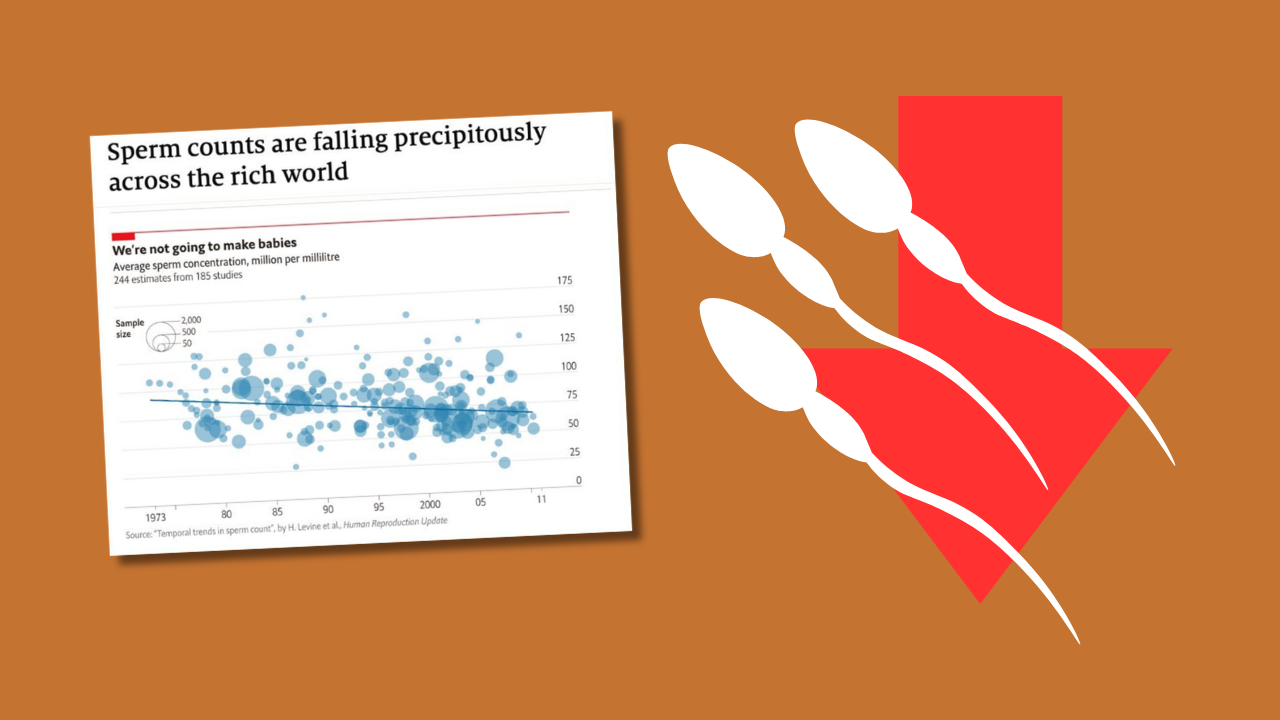I recently read a post which referenced an article in The Economist about the Levine et al. (2017) study regarding the decline in sperm count and subsequent male infertility crisis. I noticed a trend in the comment section of saying that the decline is due to an apparent lack of testosterone (T) in today's men.


Now, I get where they’re coming from. When you think of T, ideas of masculinity and virility might come to mind. For many, T equals manliness and so less T makes you less manly, therefore less virile, and thus a lower sperm count. Following this logic, more T must boost your manliness, including your fertility. But, it isn't that simple.
To be clear, clinically low levels of T, or hypogonadism, can negatively impact sperm count (Kumar et al., 2010). However, low blood serum T has been observed in only about 15% of infertile men (Ventimiglia et al., 2016). In fact, Kumanov et al. (2006), Jørgensen et al. (2016), and Zhao et al. (2020) all found no association between serum T and sperm count. Similarly, in their study of male partners of infertile couples undergoing IVF, Di Guardo et al. (2020) found no association between low total T and sperm count.
There is an established range for normal T levels in men (Travison et al., 2017) and it appears that being on the lower end of that range doesn't equate to lower sperm count. What I think is concerning is some men's obsession with increasing their T, particularly by taking supplements. According to Layton et al. (2014), the number of men taking T supplements is increasing, even among men who don’t need to because their T levels are normal.
Despite its perceived benefits, T supplementation can actually have a negative effect on fertility by inhibiting spermatogenesis and ultimately decreasing sperm production (Crosnoe et al., 2013). That’s right, counterintuitively to the above logic, increasing your T by taking supplements can actually lower your sperm count (Samplaski et al., 2013) and act as a contraceptive. This is due to negative effects on the hypothalamic-pituitary gonadal axis which inhibits the production of follicle stimulating hormone and luteinizing hormone (Patel et al., 2019).

